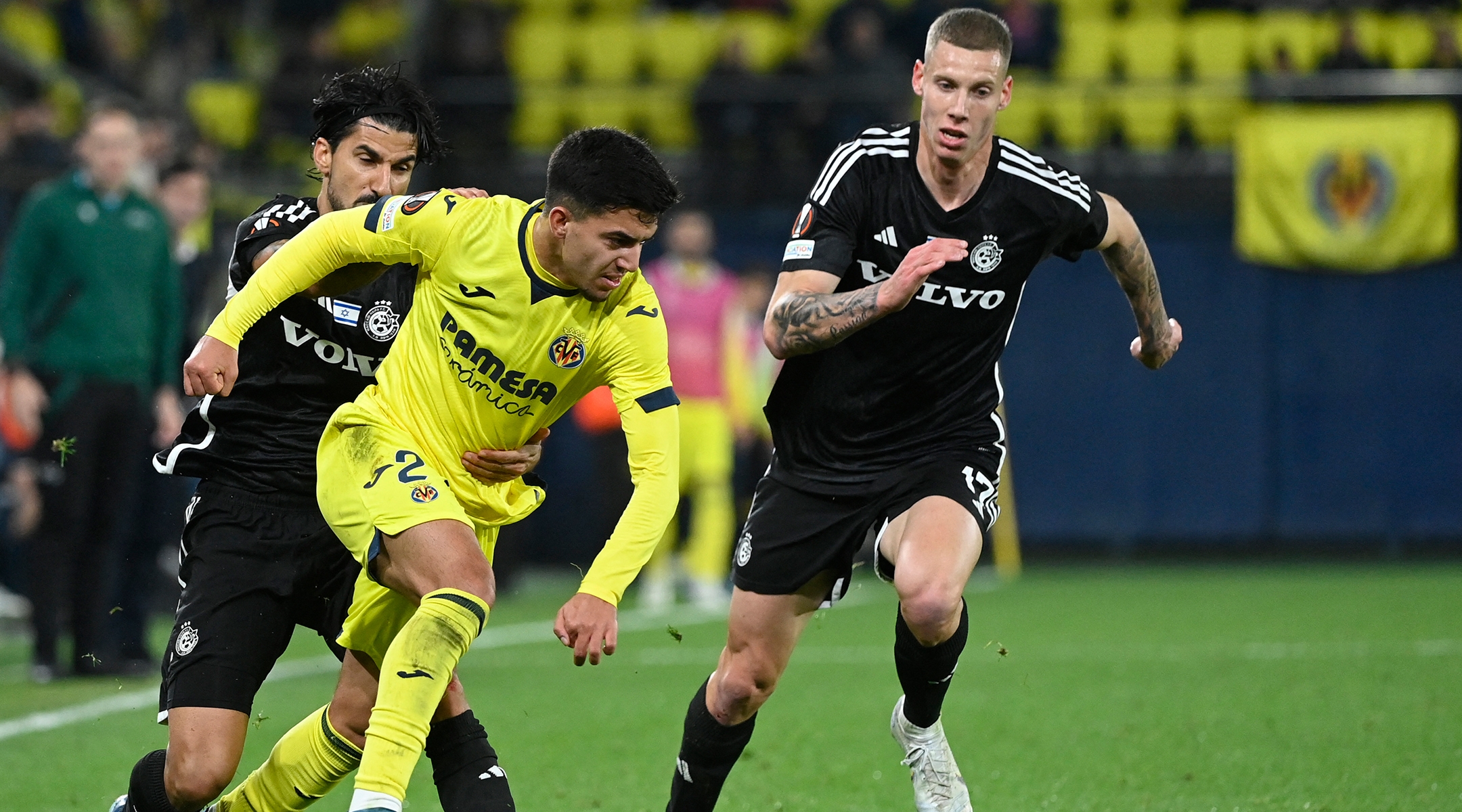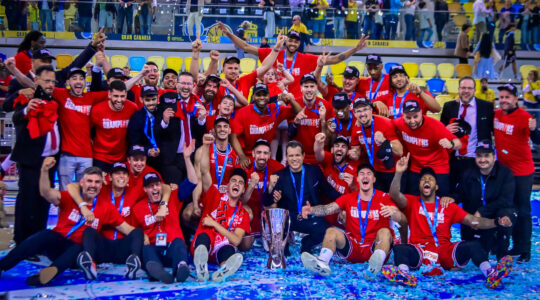(JTA) — In recent weeks, Jewish and Israeli teams and players have faced expulsion and demotion in connection with the Israel-Hamas war.
So it was hardly surprising when the mayor of a Belgian city announced that safety concerns over the war would impact an upcoming soccer match between the Israeli club Maccabi Haifa and the Belgian team KAA Gent.
The difference is that this time people are being banned from the stands, not the field.
On Feb. 21, the two teams will face off in Ghent, Belgium, in the second leg of their Conference League playoff. But because of safety concerns related to the war — which has accompanied a spike in antisemitism internationally — they will play in an empty stadium.
Ghent Mayor Mathias De Clercq made the call on the advice of local police, according to the Associated Press. Thomas Dierckens, a spokesperson for Mayor De Clercq, added that KAA Gent Arena does not have an outer perimeter, which could lead to disruptions in and around the stadium.
“Based on police information, serious problems are expected,” Dierckens told the Flemish newspaper Het Nieuwsblad.
“This not only has consequences for the safety of fans and players, but also sporting consequences,” he said. “If the match is stopped for more than half an hour due to disruption, UEFA will give KAA Gent a forfeit score of 0-5.”
Ceasefire protests have been occurring regularly in Ghent, according to the AP, including at the city’s New Year’s reception.
The Gaza war has affected international sports across countries, including in South Africa, where a young Jewish cricket star was investigated for hate speech and stripped of his leadership role with a national team over safety concerns stemming from his pro-Israel comments. In Turkey, an Israeli soccer player was detained for a public gesture marking 100 days of the war. Israel’s national hockey team was suspended from a tournament in Bulgaria, and then reinstated.
Israeli soccer teams have played all home games in neutral countries since the outbreak of the war on Oct. 7. The Union of European Football Associations, or UEFA, had ruled that Israel could not host international games due to security concerns.
Israel’s national teams chose to play their home games in Felcsút, Hungary, while Maccabi Haifa, one of the top teams in the Israeli Premier League has been playing in Larnaca, Cyprus, and Budapest.
Antisemitism has long been an issue in European soccer, with one major league, Germany’s Bundesliga, taking steps to curb anti-Jewish sentiment among its fans and at its stadiums. In the English Premier League, the Arsenal and Chelsea clubs launched Jewish fan groups, while Tottenham cracked down on fans’ use of the slur “Yid.”
The notion of holding a sporting event without fans is rare, but not unheard of. On some occasions, teams have been forced to play in empty stadiums as a punishment — as in 2013 when FIFA ordered Bulgaria and Hungary to play World Cup qualifiers without fans because of what it called “abhorrent, shameful” racist and antisemitic abuse against opposing teams.
Sometimes known as “behind closed doors” events, the decision to keep stadiums empty has also been made in the past due to inclement weather, public safety and, most notably for U.S. sports fans, during the COVID-19 pandemic.
JTA has documented Jewish history in real-time for over a century. Keep our journalism strong by joining us in supporting independent, award-winning reporting.





